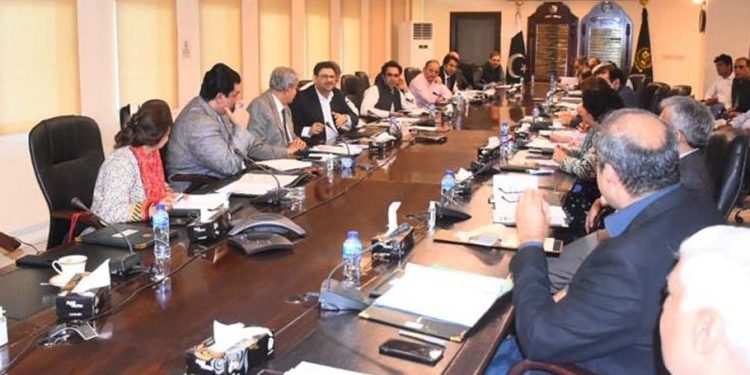ISLAMABAD: Ahead of Prime Minister Shehbaz Sharif’s visit to Doha next week, the Economic Coordination Committee of the Cabinet has approved major changes in the liquefied natural gas (LNG) policy to remove restrictions on future private sector LNG terminals.
According to media reports, in the Economic Coordination Committee meeting chaired by Finance Minister Miftah Ismail, the removal of import ban on all 33 categories comprising more than 860 products and tariff lines was also formally approved.
Earlier on July 28, the ECC had approved the lifting of the ban on all but three categories of cell phones, cars and home appliances, but the Prime Minister did not agree to the move, so the Cabinet set up the Economic Coordination Committee. The decision was not confirmed.
However, before the IMF meeting, the finance minister announced the lifting of the ban on all products, remember that Pakistan will be removed from the gray list in the next IMF meeting.
“In view of serious concerns raised by trading partners over the implementation of the embargo, the Economic Co-ordination Committee decided that the embargo may be lifted on all goods, the Economic Co-ordination Committee after 30 June 31,” an announcement said. Recommended delivery of goods withheld till July 2022 with payment of additional charge.’
The committee approved major changes in the LNG Policy 2011, which removed the key sticking point of private sector LNG terminals coming on commercial model so that terminals and LNG supply in Pakistan’s LNG supply chain. including facilitating the investment of Qatar.
The Economic Coordination Committee also allowed all LNG terminals, including currently operating terminals, to use additional capacity, which may limit existing gas pipeline capacity for new terminals.
The Economic Co-ordination Committee decided to replace Article 6.2(a) of the LNG Policy, 2011 with amendments to allow private sector to develop new LNG terminals and associated facilities to third parties without government guarantees. This third party access will be for a period of 20 years commencing with the terminal construction of the terminal so third party access will be mandatory for each terminal.
Additionally, terminal developers, operators, and related entities shall submit information and relevant information to the Oil and Gas Regulatory Authority (OGRA) for market surveillance.
TPA for unutilized capacity of contracted LNG terminals by public sector entities will be regulated through mandatory OGRA.









